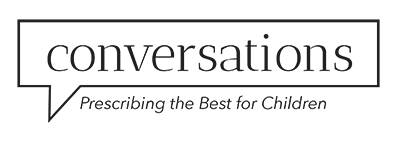Adolescent Pregnancy
Pediatricians often face the difficult situation of informing an adolescent that she is pregnant. Using scientific evidence, combined with compassion, pediatricians can assist the teen as she considers her options, while maintaining their own pro-life views.
BACKGROUND
- In the United States, approximately 820,000 teens become pregnant each year. More than one in four girls will get pregnant at least once before the age of 20 years.
- Teens aged 15 to 19 years had more than 150,000 abortions in the United States in 2010.
- Approximately 5% of all abortions are obtained by minors.
- The reasons teens most frequently give for having an abortion include concern about how having a baby would change their lives, inability to afford a baby, or lack of maturity in raising a child.
- As of May 2014, laws in 28 states required that a minor seeking an abortion involve her parents in her decision.
- Black women were 3.7 times more likely to have an abortion in 2010 than non-Hispanic white women, according to the Centers for Disease Control.
PROMOTING STRONG, STABLE FAMILIES
- All life is precious and should be protected from conception through natural death.
- It is especially important to protect the most vulnerable—for pediatricians, this includes the unborn and newborn.
- Abortion, even when performed for rape or incest, is still the taking of a human life and is never condoned.
SCIENTIFIC RESEARCH
Adolescents who have an abortion may sustain medical complications from the procedure.
- Infection
- Bleeding
- Uterine perforation
Adolescents who have an abortion may have serious long-term negative consequences.
- Increased risk of subsequent pregnancy
- Increased risk of mental health concerns, depression, and suicide
- Increased risk of alcohol and drug abuse
- Increased risk of future premature birth
- Increased risk of breast cancer if the abortion occurs before a full-term pregnancy
Adolescents who give up their babies for adoption are less likely to have a subsequent pregnancy while a teen.
THE CONVERSATION
An initial conversational approach might begin as follows: “I know you are waiting for the results of the pregnancy test. Have you thought about what a positive pregnancy test will mean for you?” Or, “What does being pregnant mean to you?”
- Many teens suspect they are pregnant and have already started to think through options.
- Others may be in denial and have not yet started this thought process.
- This question gives you insight into the teen’s thoughts and provides a starting point for the conversation.
“What options do you think you have?”
Allow the teen to mention all three of the following options. If she does not mention adoption, you can remind her it is a valid option for consideration.
- Parenting
- Adoption—“Have you considered adoption? There are many loving families who are just waiting to receive a new baby into their home.”
- Abortion
“What are the pros and cons of each of these?”
A second conversational approach might be:
“Making this decision is extremely important, and I want to make sure that you have all the information and take all the time you need.”
“What information will you need to make the best decision for you?”
- Answer the teen’s questions.
- Provide a pamphlet with pregnancy information, especially one that includes drawings or photos of babies at different gestational ages.
- Provide resources for the teen to access additional information (e.g., a website for pregnant teens such as www.optionline.org).
“Would you like to go home and think about this more?”
- “I will call you in the morning to hear your thoughts, answer any questions, and find out how I can help you.”
A third approach might be:
“Now that we know you are pregnant, we need to focus on helping you have a healthy pregnancy and a healthy baby.”
- Start prenatal vitamins.
- Discuss healthy lifestyle habits such as diet and exercise.
Refer to pro-life ob-gyns by saying, “Here is a list of ob-gyn doctors who I know work well with teenage girls.”
If there is a pregnancy care center or crisis pregnancy center in your area, have the contact information and brochure available in your office.
Remember to include the teen’s parents or guardians in the conversation.
“You will be making important decisions and other young women in your situation find it helpful to talk with their parents or guardians.”
- “Teens often feel their ‘parents will kill them’ when they find out they are pregnant.”
- “However, my experience is that nearly all parents truly want the best for their children and will be very supportive of you.”
- “Your parents will initially be shocked and perhaps sad, but soon they will realize they want to be there for you and help you.”
“May I help you talk with your family?”
RESOURCES
- American College of Pediatricians, Position Statement, “Abortion and the Risk of Breast Cancer: Information for the Adolescent Woman and Her Parents,” https://acpeds.org/position-statements/induced-abortion-risks-that-may-impact-adolescents-young-adults-and-their-children
- Booklet from Focus on the Family: The First 9 Months, which depicts fetal development,
- OptionLine, optionline.org
- American College of Pediatricians, “Reproductive Choices Affect the Risk of Breast Cancer.”
- American College of Pediatricians, Position Statement, “Emergency Contraception – Not the Best for Adolescents,”
